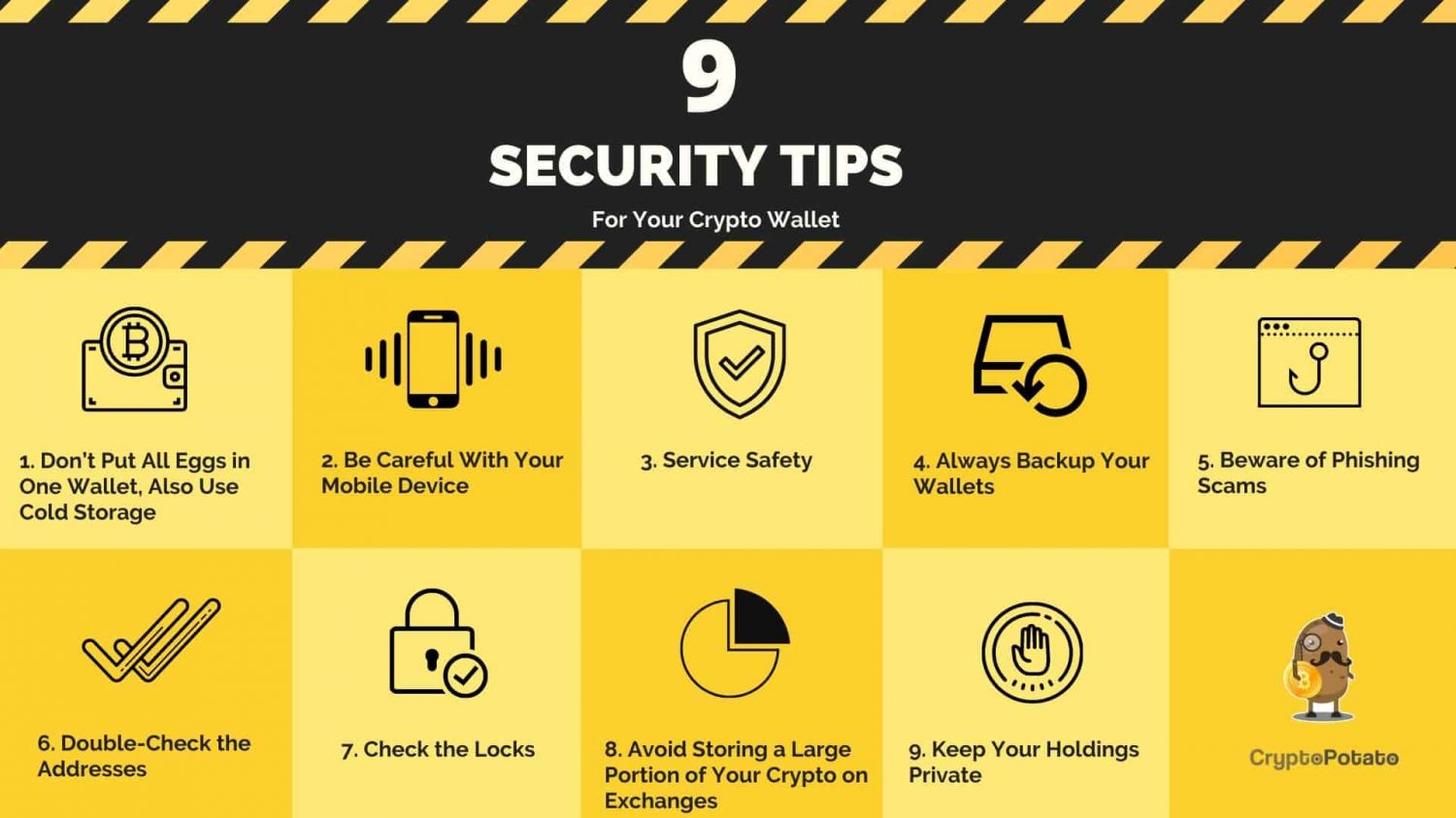How to Protect Your Cryptocurrency Investments from Scammers

- Recognizing common cryptocurrency scams
- Tips for securely storing your cryptocurrency
- How to spot phishing attempts targeting your crypto assets
- Protecting your private keys from theft
- Avoiding fraudulent ICOs and investment schemes
- Utilizing two-factor authentication for added security
Recognizing common cryptocurrency scams
When investing in cryptocurrency, it is crucial to be aware of the common scams that exist in the digital asset space. By recognizing these scams, you can protect your investments and avoid falling victim to fraudulent schemes.
- One common cryptocurrency scam is phishing, where scammers send emails or messages pretending to be from legitimate companies to trick individuals into revealing their private keys or passwords. Be cautious of unsolicited messages and always verify the sender’s identity before sharing any sensitive information.
- Another prevalent scam is fake ICOs (Initial Coin Offerings), where scammers create fake websites and social media profiles to promote nonexistent projects and deceive investors into sending them money. Before investing in any ICO, conduct thorough research to verify the legitimacy of the project.
- Ponzi schemes are also a common scam in the cryptocurrency world, where scammers promise high returns on investments but use new investors’ funds to pay returns to earlier investors. Be wary of investment opportunities that sound too good to be true and always do your due diligence before investing.
- Impersonation scams involve scammers posing as well-known figures in the cryptocurrency industry, such as influencers or executives of blockchain companies, to deceive individuals into sending them cryptocurrency. Always double-check the identity of the person you are interacting with online to avoid falling for impersonation scams.
By being vigilant and staying informed about the various cryptocurrency scams that exist, you can protect your investments and minimize the risk of falling victim to fraudulent activities in the digital asset space.
Tips for securely storing your cryptocurrency
When it comes to safeguarding your cryptocurrency investments, securely storing your digital assets is crucial. Here are some tips to help you protect your funds from scammers:
- Use a hardware wallet: Consider investing in a hardware wallet to store your cryptocurrency offline. This type of wallet is considered one of the most secure options available.
- Enable two-factor authentication: Adding an extra layer of security to your accounts with two-factor authentication can help prevent unauthorized access.
- Backup your wallet: Make sure to regularly backup your wallet and store the backup in a secure location. This will help you recover your funds in case your wallet is lost or damaged.
- Avoid sharing sensitive information: Be cautious about sharing your private keys, passwords, or other sensitive information online. Scammers may try to trick you into revealing this information.
- Keep your software up to date: Regularly update your wallet software and operating system to protect against potential security vulnerabilities.
By following these tips, you can enhance the security of your cryptocurrency investments and reduce the risk of falling victim to scams.
How to spot phishing attempts targeting your crypto assets
When it comes to protecting your cryptocurrency investments from scammers, one of the most important things to be aware of is how to spot phishing attempts targeting your crypto assets. Phishing is a common tactic used by scammers to trick individuals into revealing their sensitive information, such as passwords or private keys, by posing as a legitimate entity.
Here are some tips to help you identify phishing attempts and protect your crypto assets:
- Be wary of unsolicited emails or messages asking for your cryptocurrency information. Legitimate companies will never ask you to provide sensitive information via email or message.
- Check the URL of any website asking for your crypto assets. Scammers often create fake websites that look similar to legitimate ones but have slight variations in the URL.
- Avoid clicking on links or downloading attachments from unknown sources. These could contain malware designed to steal your cryptocurrency information.
- Double-check the sender’s email address or contact information. Scammers may use email addresses that look similar to legitimate ones but have slight variations.
- Trust your instincts. If something feels off or too good to be true, it’s best to err on the side of caution and not provide any cryptocurrency information.
By staying vigilant and following these guidelines, you can help protect your crypto assets from phishing attempts and keep your investments safe from scammers.
Protecting your private keys from theft
Protecting your private keys is crucial in safeguarding your cryptocurrency investments from potential theft by scammers. Private keys are essentially the passwords that grant access to your digital assets, so it is imperative to keep them secure at all times. Here are some tips to help you protect your private keys:
- Store your private keys offline in a secure location, such as a safe deposit box or a hardware wallet.
- Avoid sharing your private keys with anyone, including friends and family members.
- Use a strong password to encrypt your private keys and consider using a password manager to securely store them.
- Be cautious of phishing attempts and never enter your private keys on any website or platform that seems suspicious.
- Regularly back up your private keys and store them in multiple secure locations to prevent loss.
By following these best practices, you can significantly reduce the risk of your private keys being stolen by scammers and protect your cryptocurrency investments from potential theft.
Avoiding fraudulent ICOs and investment schemes
When investing in cryptocurrency, it is crucial to be vigilant and avoid falling victim to fraudulent ICOs and investment schemes. Scammers often prey on unsuspecting investors by promising high returns with little to no risk. To protect your investments, here are some tips to help you steer clear of potential scams:
- Research the team behind the ICO or investment scheme. Look for information about their experience, credentials, and track record in the industry. A legitimate team will have a transparent and verifiable background.
- Avoid investments that promise guaranteed returns or seem too good to be true. Remember, cryptocurrency investments carry inherent risks, and there are no guarantees in the market.
- Be wary of projects that lack a clear roadmap or whitepaper. A detailed plan outlining the project’s goals, timeline, and technology is essential for evaluating its legitimacy.
- Check for red flags such as fake endorsements, plagiarized content, or a lack of community engagement. Scammers often use these tactics to create a false sense of credibility.
- Consult reputable sources such as cryptocurrency forums, news outlets, and regulatory agencies to stay informed about potential scams and fraudulent activities in the market.
By staying informed, conducting thorough research, and exercising caution, you can protect your cryptocurrency investments from scammers and make informed decisions in the ever-evolving digital asset landscape.
Utilizing two-factor authentication for added security
Enhancing the security of your cryptocurrency investments is crucial in protecting your assets from scammers. One effective way to add an extra layer of security is by utilizing two-factor authentication (2FA). 2FA requires users to provide two different authentication factors to verify their identity before gaining access to their accounts.
By enabling 2FA, you can significantly reduce the risk of unauthorized access to your cryptocurrency wallets or exchanges. This security feature adds an additional step to the login process, making it more challenging for scammers to breach your accounts. Even if a scammer manages to obtain your password, they would still need the second factor (such as a unique code sent to your phone) to access your account.
It is essential to choose a reliable 2FA method, such as using a mobile authenticator app like Google Authenticator or Authy. Avoid using SMS-based 2FA, as it can be vulnerable to SIM swapping attacks. Additionally, make sure to securely store backup codes provided by the 2FA service in case you lose access to your primary authentication method.




